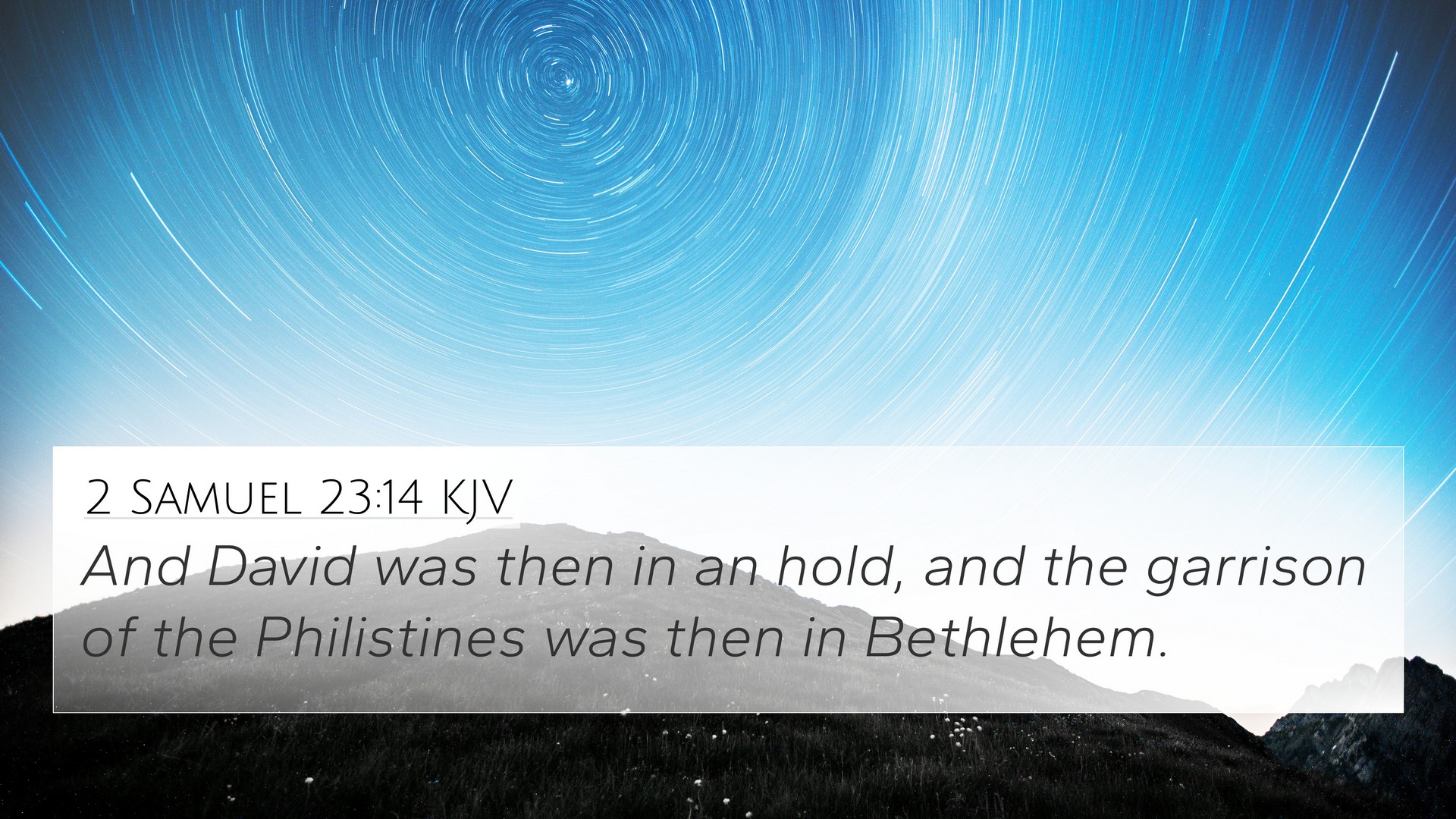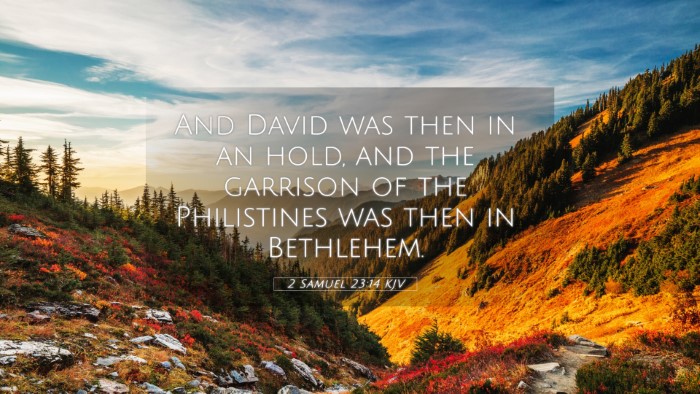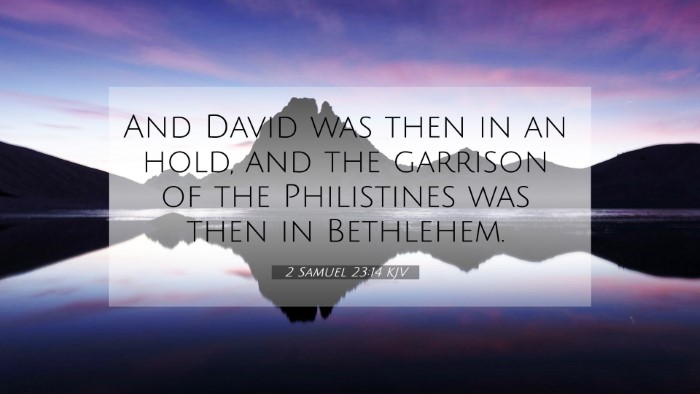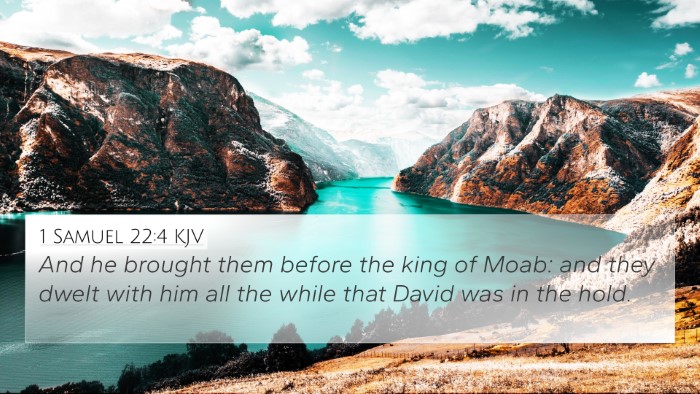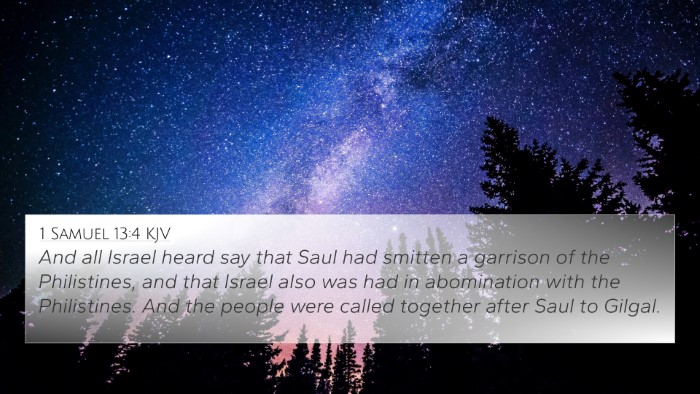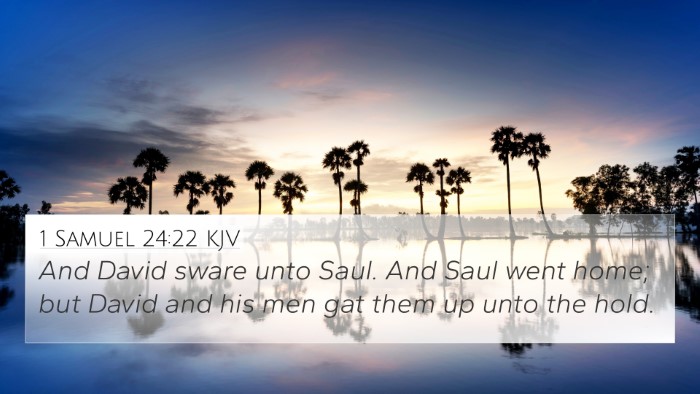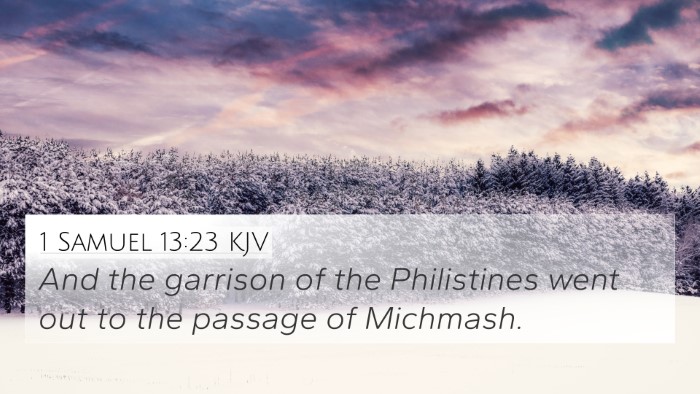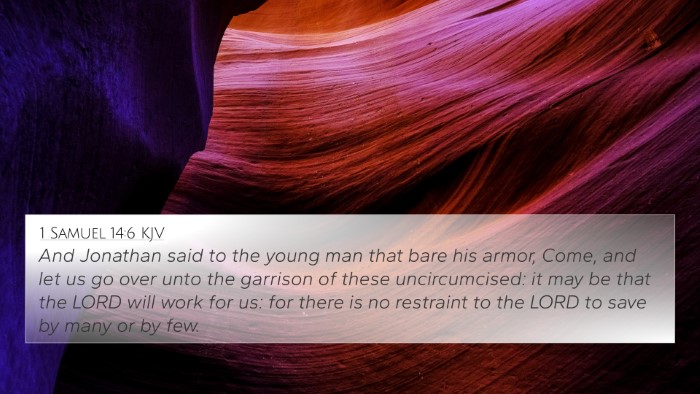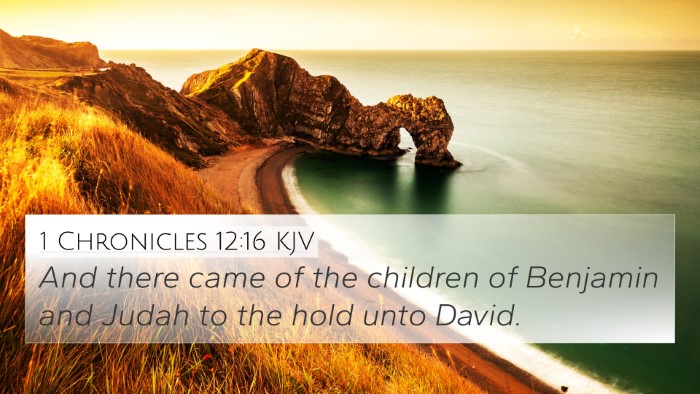Understanding 2 Samuel 23:14
2 Samuel 23:14 states: "And David was then in an hold, and the Philistines’ garrison was then at Bethlehem." This verse encapsulates a moment in David's life during a time of siege and hardship. The surrounding context, preceding events, and thematic significance enrich our understanding of this passage.
Contextual Background
The historical backdrop of 2 Samuel depicts David's reign as marked by both valor and struggle. At this juncture, David finds himself in a fortified position, indicative of a temporary refuge, facing threats from the Philistines. The mention of Bethlehem is poignant, as it is both David's birthplace and a prophetic symbol of the Messiah's coming.
Commentary Insights
-
Matthew Henry:
Matthew Henry suggests that this verse highlights the pressures David faced as a leader. His stronghold is not just a military position but a reflection of his status as the anointed king. The Philistine garrison represents external threats, yet also stresses the loyalty and fortitude required to reclaim his homeland.
-
Albert Barnes:
Albert Barnes emphasizes the physical and spiritual significance of Bethlehem. This verse serves to connect David's hardships with the greater narrative of divine providence. Despite his trials, the stronghold provides a reminder of God’s protection over His chosen leader.
-
Adam Clarke:
Adam Clarke asserts that David's presence in a hold signifies his reliance on divine strength during turbulent times. The reference to the Philistines is essential; it delineates the consistent threat those outside Israel posed and frames the ongoing struggle for peace and stability.
Thematic Connections
This verse can be linked to numerous other scriptures that reflect themes of refuge, leadership under duress, and the significance of prophetic fulfillments. Below are notable cross-references:
- Psalm 27:5: "For in the time of trouble he shall hide me in his pavilion: in the secret of his tabernacle shall he hide me; he shall set me up upon a rock."
- Micah 5:2: "But thou, Bethlehem Ephratah, though thou be little among the thousands of Judah, yet out of thee shall he come forth unto me that is to be ruler in Israel."
- 1 Samuel 22:1-2: "David therefore departed thence, and escaped to the cave Adullam: and when his brethren and all his father’s house heard it, they went down thither to him."
- 2 Samuel 5:17: "But when the Philistines heard that they had anointed David king over Israel, all the Philistines came up to seek David; and David heard of it, and went down to the hold."
- Hebrews 6:18-19: "That by two immutable things, in which it was impossible for God to lie, we might have a strong consolation, who have fled for refuge to lay hold upon the hope set before us."
- Isaiah 11:1: "And there shall come forth a rod out of the stem of Jesse, and a Branch shall grow out of his roots."
- Matthew 2:1-6: The account of the Magi highlights Bethlehem's significance in the birth of Christ.
Inter-Biblical Dialogue
This verse opens discussions not just within the Old Testament context but propels us into the New Testament where David's lineage culminates in Jesus Christ. This connection emphasizes the enduring legacy of David as a revered figure in the biblical narrative.
Comparative Bible Verse Analysis
When performing a comparative Bible verse analysis, 2 Samuel 23:14 creates a dialogue with various other scripture passages. Here we see the God-ordained journey of David juxtaposed with the divine fulfillment in the New Testament. David’s struggles foreshadow the advent of Christ and the Messiah’s liberating work, thus linking themes of kingship, struggle, and eventual triumph in the Biblical narrative.
Tools for Bible Cross-Referencing
Utilizing tools and resources like a Bible concordance or a cross-reference Bible study guide can enhance one’s understanding of scripture connections. These resources facilitate a deeper exploration into the connections between Bible verses and support a more nuanced interpretation of verses such as 2 Samuel 23:14.
Conclusion
The significance of 2 Samuel 23:14 extends beyond its immediate narrative. It serves as a critical point for exploring themes of faith, endurance, and God's everlasting covenant with His people. Through cross-referencing related scriptures, we can appreciate how each verse builds upon the other, enriching our understanding of the sacred text.
